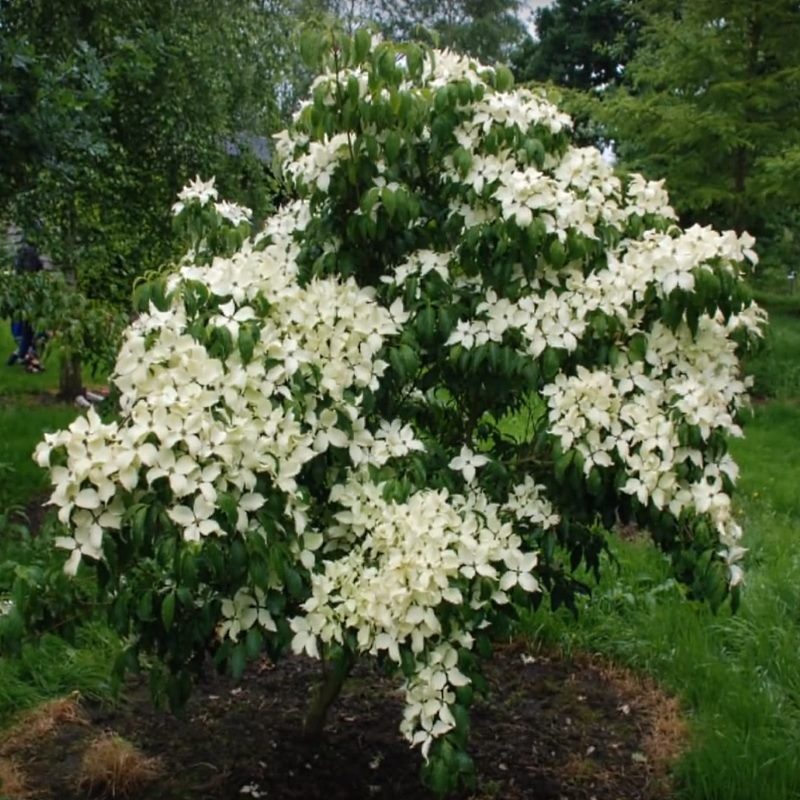
Cornus kousa 'China Girl' (Flowering Dogwood)
The Cornus kousa var. chinensis China Girl is an excellent addition to any garden, offering striking beauty throughout the seasons. By providing the right amount of sunlight, well-draining soil, proper watering techniques, regular pruning care, and addressing potential pests or diseases promptly you can ensure its success in your garden for.
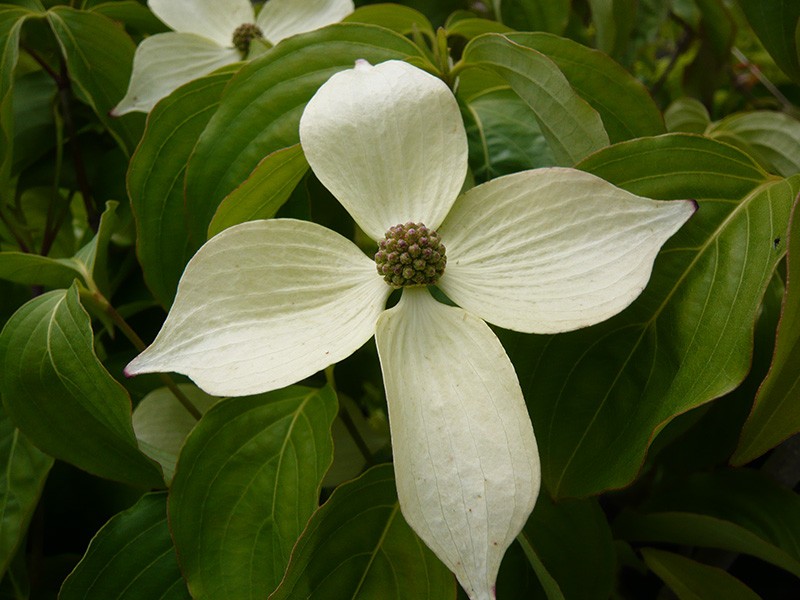
Cornus kousa 'China Girl'
China Girl Chinese Dogwood is recommended for the following landscape applications; Accent; General Garden Use; Planting & Growing. China Girl Chinese Dogwood will grow to be about 20 feet tall at maturity, with a spread of 16 feet. It has a low canopy with a typical clearance of 1 foot from the ground, and is suitable for planting under power.
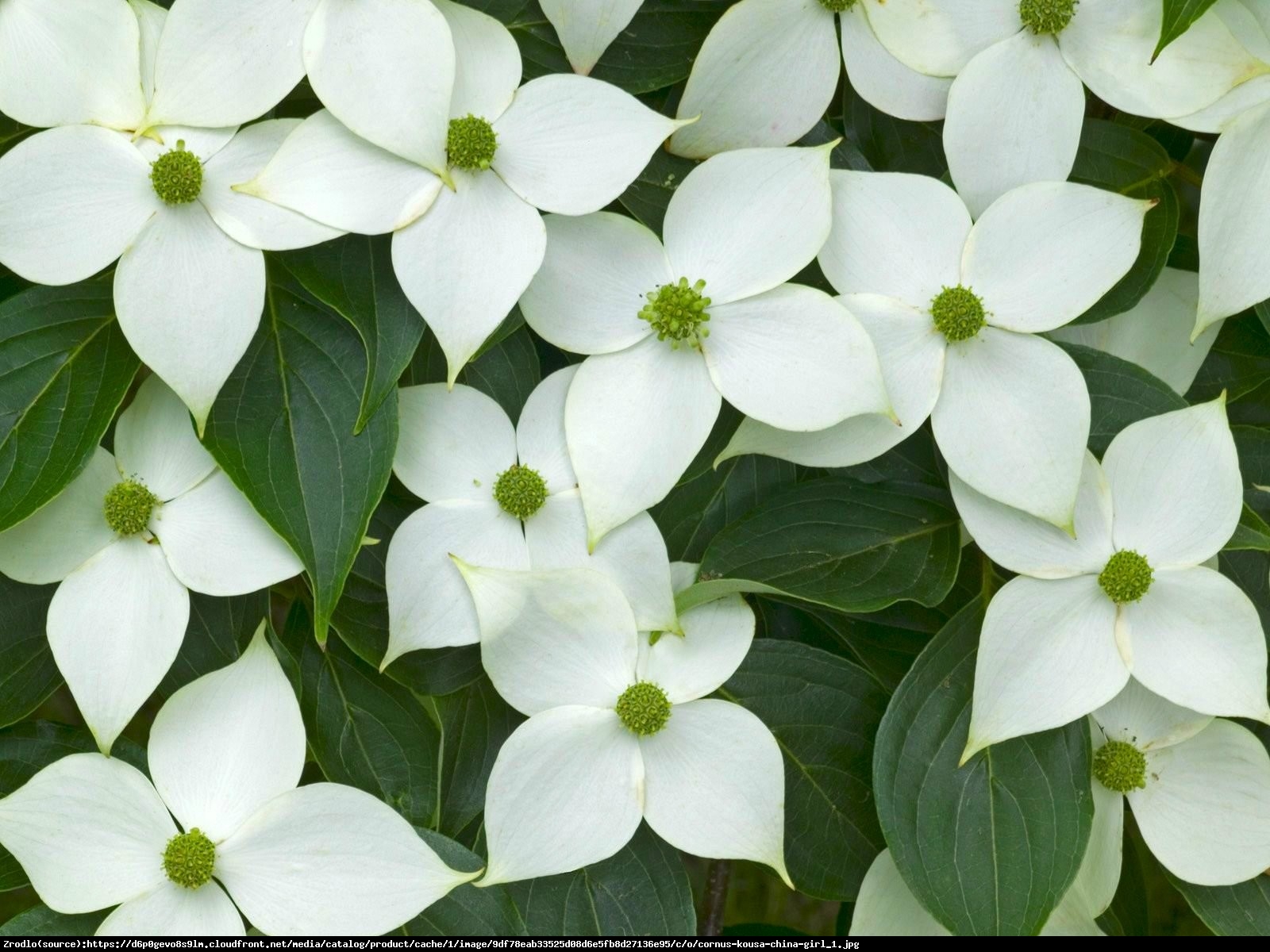
Dereń kousa China Girl Cornus kousa China Girl
extremely popular variety C. kousa 'China Girl', which has creamy white 'flowers' (technically bracts, of course), in June. I deliberated about buying the plant because the natural habit of its mid-green, slightly pointed leaves appeared somewhat droopy to me, and not particularly appealing.. Cornus Kousa 'China Girl' - Nigel Needham
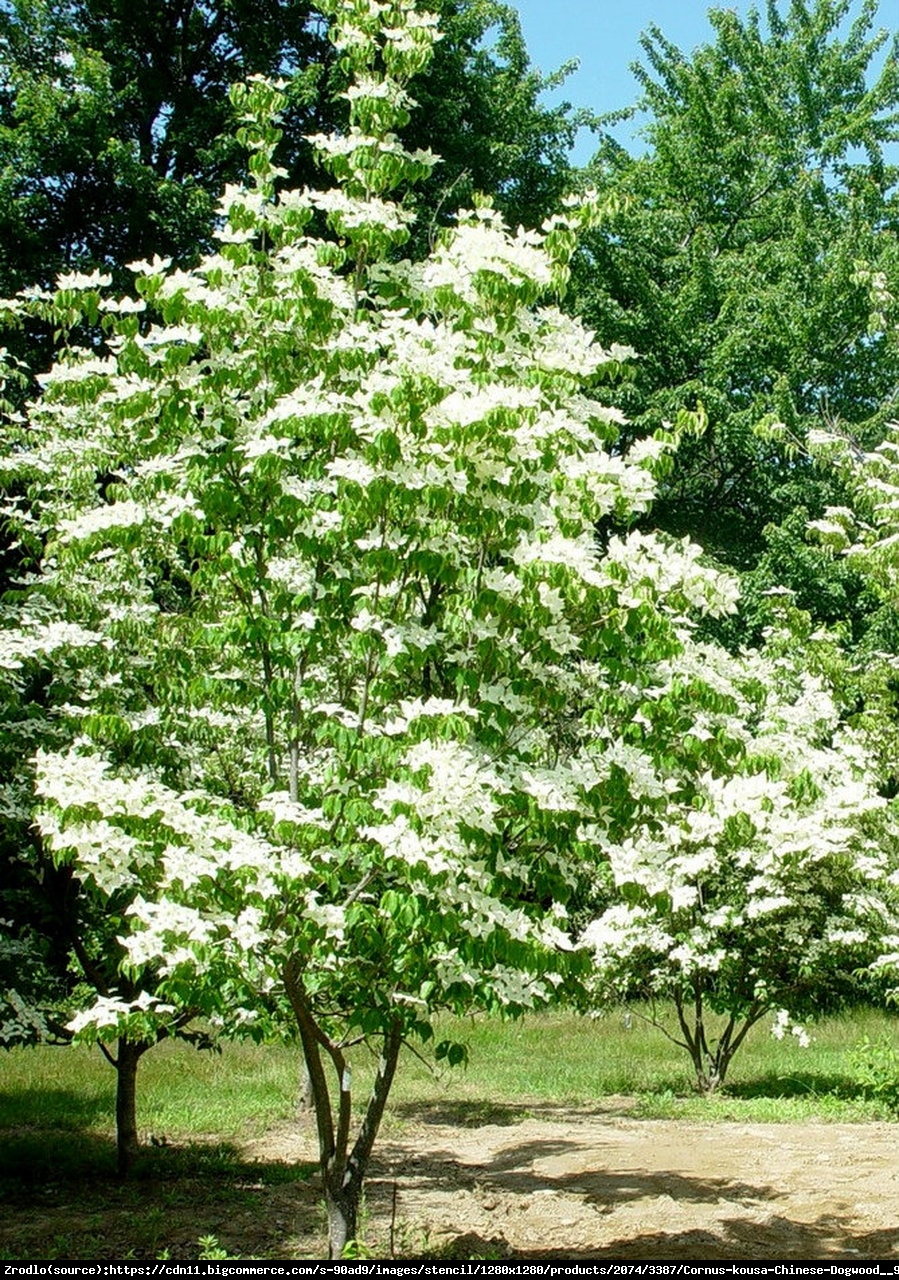
Dereń kousa China Girl Cornus kousa China Girl
Cornus kousa 'China Girl' - a flowering dogwood, it has white bracts in June followed by strawberry like fruits after a hot summer. A small hardy tree or shrub reaching 6m; Cornus mas - a valuable winter-flowering hardy shrub. Offers tiny scented yellow flowers on bare stems in January and February. Height 3m

Cornus kousa 'China Girl' Tuincentrum Baeten
Cornus kousa 'China Girl' produces a mass of creamy yellow tinted bracts in June, later than Cornus florida varieties and after most spring flowering trees have finished. The oval foliage is dark-green, turning striking shades of orange and red in the autumn. Small pink fruits that have a similar appearance to strawberries also adorn the.

Cornus China Girl Dogwood Tree Mail Order Trees
Variety or Cultivar. 'China Girl' is a rounded to spreading, deciduous shrub or small tree with ovate, dark green leaves turning orange in autumn and, in late spring and early summer, small, green flower heads surrounded by four prominent, white bracts followed by strawberry-like, reddish-pink fruit in autumn.

Cornus kousa 'China Girl' (Flowering Dogwood)
Cornus kousa is a small deciduous tree 8-12 m (26-39 ft) tall, in the flowering plant family Cornaceae.Common names include kousa, kousa dogwood, Chinese dogwood, Korean dogwood, and Japanese dogwood. Synonyms are Benthamia kousa and Cynoxylon kousa. It is a plant native to East Asia including Korea, China and Japan. Widely cultivated as an ornamental, it is naturalized in New York State.

Cornus kousa China Girl Yellow Flowering Chinese Dogwood Trees
Japanese dogwood 'China girl' grows to about 15 to 30 feet in height and spreads to the same size between 20 and 50 years. Cornus Kousa 'Chins girl' is a beautiful specimen plant that can be used to beautify your patio, lawns, like flower or shrub borders, in woodland gardens, informal gardens, and other naturalised areas.
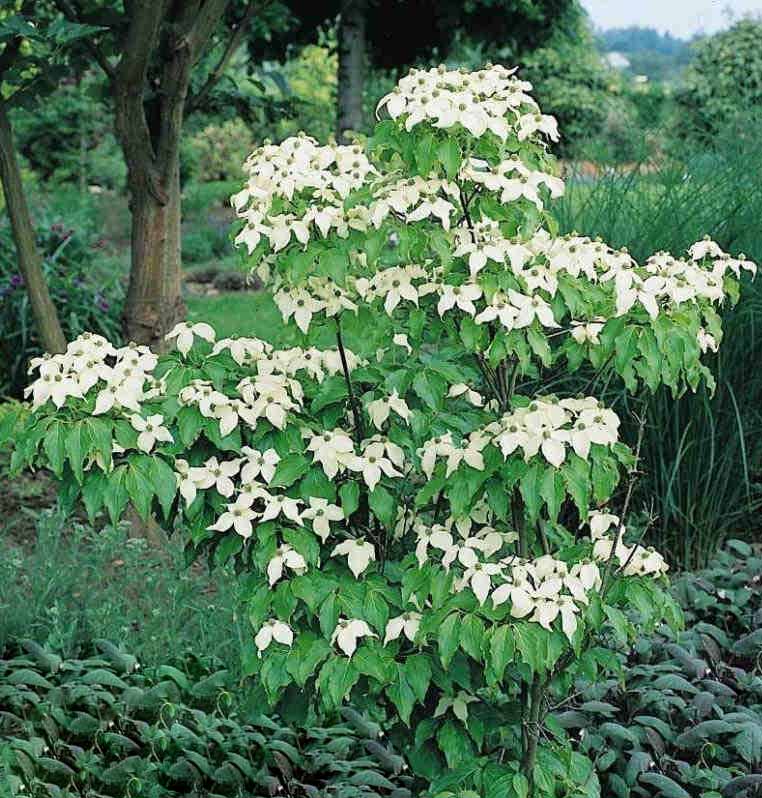
Cornus kousa China Girl CO 100/125 Hillis Planteskole
China Girl Chinese Dogwood is recommended for the following landscape applications; Accent; General Garden Use; Planting & Growing. China Girl Chinese Dogwood will grow to be about 20 feet tall at maturity, with a spread of 16 feet. It has a low canopy with a typical clearance of 1 foot from the ground, and is suitable for planting under power.
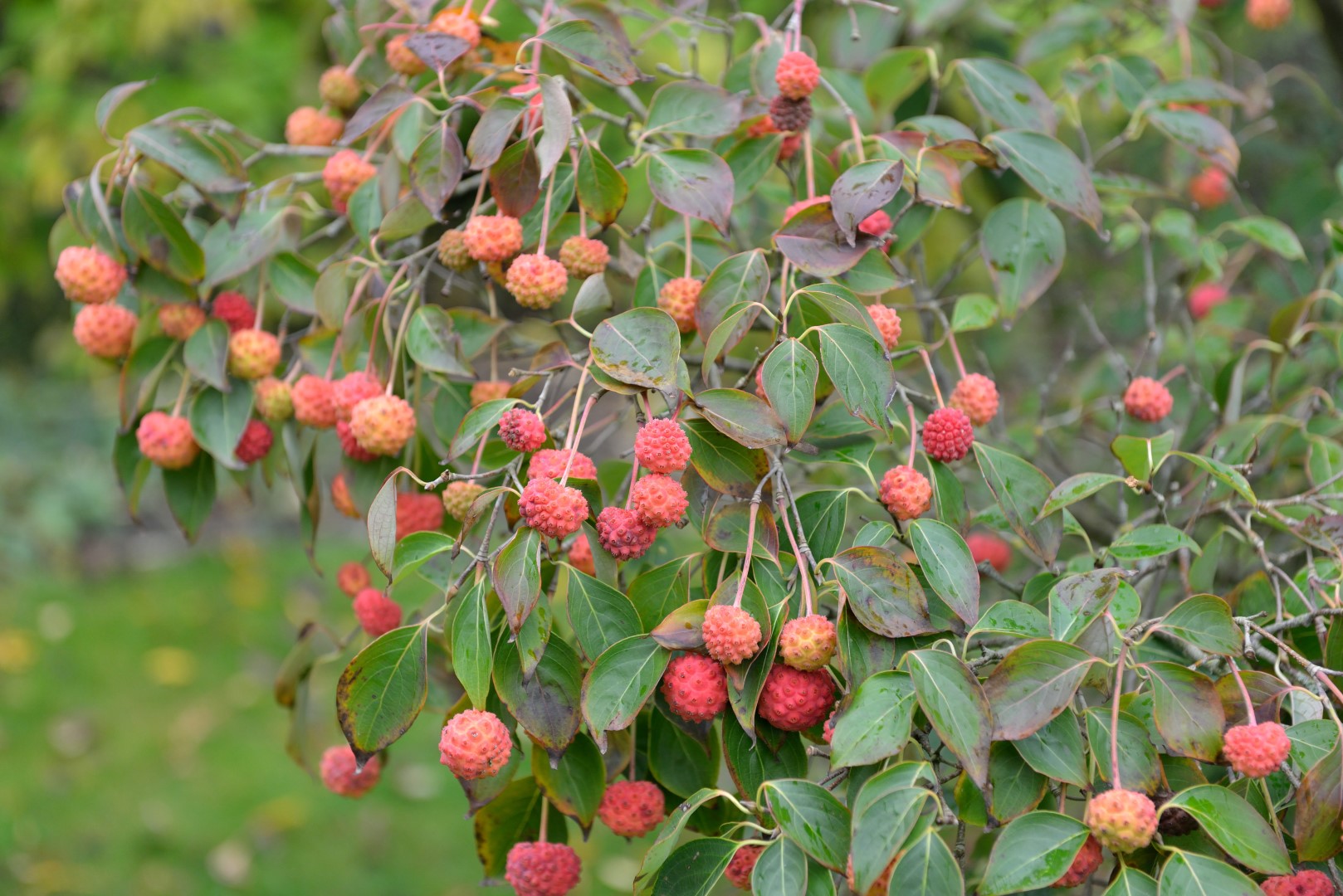
Cornus kousa 'China Girl' Cornus kousa 'China Girl' Van den Berk Baumschulen
The Kousa dogwood is a handsome, small- to medium-sized tree reaching a mature height of 30 feet. Sometimes referred to as the Chinese dogwood, this Asian is a cousin to our native flowering dogwood. It can be used as a specimen plant or in shrub borders. The genus name, Cornus, is Latin, from the word, cornu, which means "horn." This.

Cornus kousa China Girl Yellow Flowering Chinese Dogwood Trees
Chinese dogwood 'China Girl'. A large shrub or small tree, vigorous and very free-flowering from a young age. Dark green, oval leaves turn red and orange in autumn. Small clusters of tiny, greenish flowers appear in summer surrounded by large, showy, white bracts and are followed by fleshy, deep pink fruit.
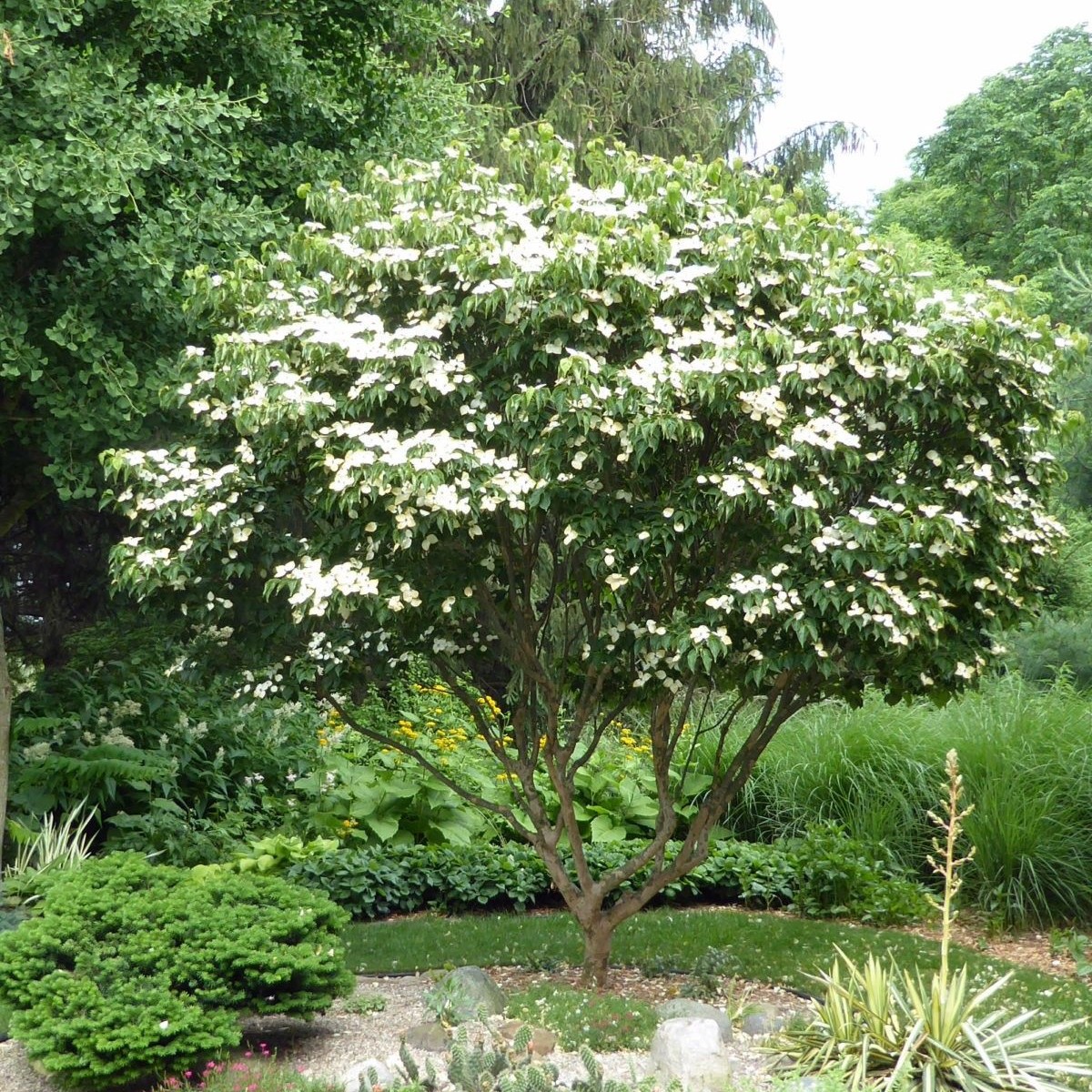
Drieň kousa Cornus kousa 'China Girl' Co18L 125/150 MAX GARDEN záhradné centrum pre Vašu
Commonly known as Chinese dogwood. Ovate, wavy-margined leaves to 8cm (3in) long. Free-flowering, even when young. Produces flower heads to 1cm (½in) across surrounded by 4 bracts 2.5-5cm (1-2in) long, which fall early, followed by strawberry-like fruit. Hardy in most places throughout the UK even in severe winters.
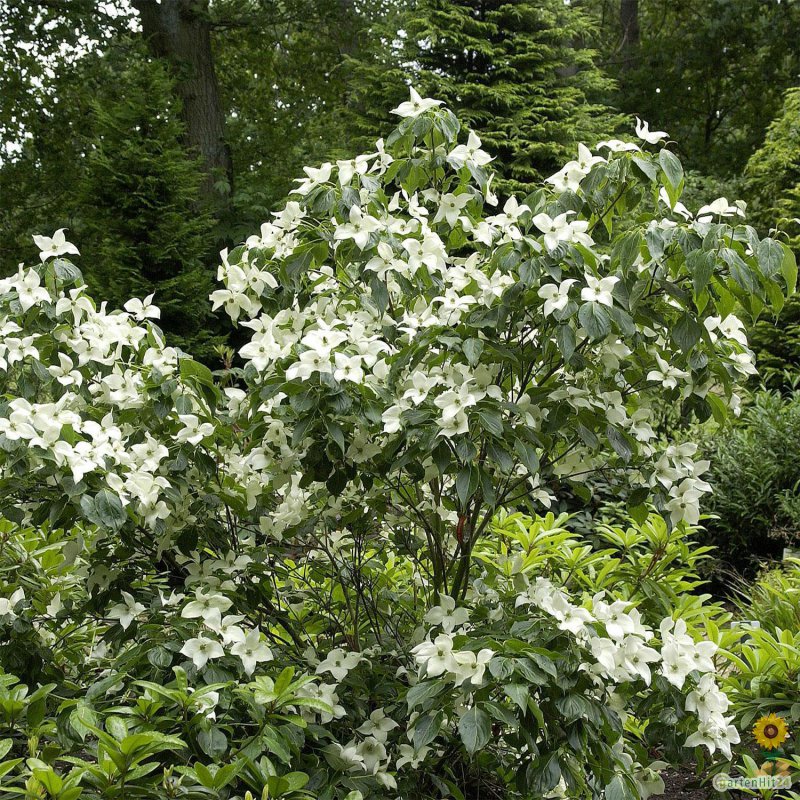
Cornus kousa chinensis 'China Girl' online kaufen
Prized for its four seasons of interest, Cornus kousa var. chinensis 'China Girl' (Chinese Dogwood) is a large, multi-stemmed shrub or small tree with a broad, vase-shaped crown. In late spring, an incredible array of star-like blooms appear. They consist of four huge, pointed, milky white bracts surrounding the center cluster of tiny.

Cornus kousa China Girl Yellow Flowering Chinese Dogwood Trees
Cornus kousa 'China Girl'. Cornus is commonly known as dogwood, the varieties of which can be distinguished by their blossoms, berries, and bark. They are deciduous trees or shrubs, but a few species are perennial sub-shrubs, and some of the woody types are evergreen. Several varieties produce inconspicuous flowers.

Cornus China Girl Caragh Nurseries
Flower Colour: Creamy white. Rate of Growth: Moderate. Habit: Cornus kousa 'China Girl' grows to be a large shrub in the short term or eventually small tree with a dense, branching crown. Height: up to 6 m (20 ft). Spread: 5 m (16 ft). Notes: The flowering of this Cornus is somewhat dependent upon the previous years summer weather.

Cornus Kousa Var Chinensis 'China Girl' from Burncoose Nurseries FLOWERING DOGWOODS Winter
A time-lapse video of the Cornus kousa 'China Girl' (Flowering Dogwood) in our gardens.The video begins in late May 2012 as the flower bracts begin to colour.